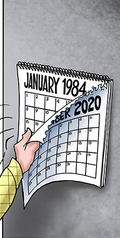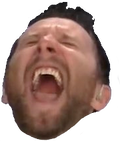

I bought black licorice at the store and the cashier called it disgusting. I don’t care, I’ll keep eating that garbage.


I bought black licorice at the store and the cashier called it disgusting. I don’t care, I’ll keep eating that garbage.


It’s a work phone and I don’t really care about it, but thanks for letting me know that’s possible.


The next AI winter can’t come soon enough


It’s probably like the Bixby button on my Samsung phone: all it does is complain I haven’t set it up yet when I accidentally push it while changing the volume.


Those beliefs are very well substantiated. Fuck, you could even find this shit on Wikipedia. Look for “DF-21” and then look at the news articles about the American tests blowing up.


SMIC makes 5nm chips with DUV tech when Intel can’t break 5nm with EUV and billions in subsidies.


How do you intend to make such a reality happen?


America deserved 9/11


Personally, I would choose to focus on things I ostensibly have some amount of control over. As an American, I have no effect whatsoever on Chinese laws or policy. However, I allegedly have power over my own country’s laws and policies, so I choose to expend my energy trying to end slave labor in America, which is legal if the person has been convicted of a crime.
Why would I spend the precious little free time and energy I have (between making enough money to pay rent and eat food) on something out of my control?


What a worthless use of paper.


Nothing killed libertarianism for 19 year old me like reading that trash.


I just take the complimentary ones from hotels




Kids being forced to read 1984 in high school like “THIS IS LITERALLY 1984”


Yeah, we should ban workers from being able to wear the American flag (see: Napalm, Vietnam War Atrocities)


They are actively using exported digital and electronics goods to spy on everyone.
https://www.cnet.com/news/privacy/nsa-reportedly-installing-spyware-on-us-made-hardware/
They try to catch political dissidents outside their borders,
https://en.wikipedia.org/wiki/Julian_Assange
spy on several government infrastructures
and try to instigate a new form of colonialism in Africa, so what exactly are they crying about ?
I really despise these hypocrites.
I’ll save you the trouble and put “Whatsboutism” here so you don’t even have to reply.


They can also block specific comms. It’s how I stopped the AI art posts from filling up my All feed.


moaning labia



Please engage with contemporary, mainstream historians who have studied the now open Soviet archives. I recommend R. W. Davies and Stephen G. Wheatcroft, The Years of Hunger: Soviet Agriculture, 1931-1933. You can just read the introduction (all but the first edition) where they discuss and go into detail on Holodomor as genocide. It’s in English and pretty accessible to lay people. The rest of the book will likely be of no interest to you, as it’s part of a series of very dry academic publications by the authors that goes into the minutiae of Soviet agriculture. If that interests you, go for it.
This book is in libgen.
Please. I’m begging you. Go to your local community/junior college, find a class in Philosophy and enroll in it. Take a class in political science. Engage in these subjects deeper than surface level. Actually try to internalize and understand these subjects. It will improve your life in many ways.